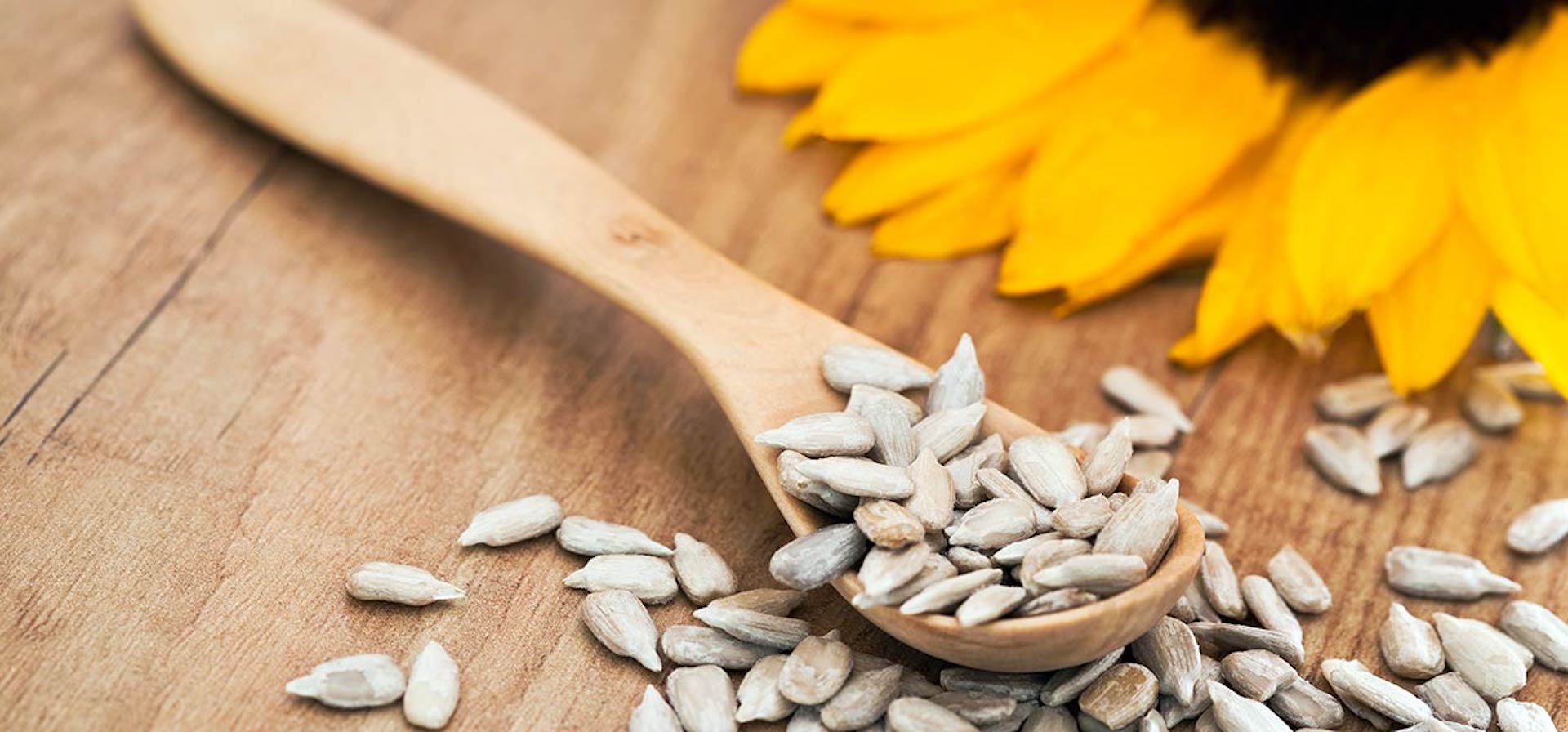With sunflower season around the corner, we figured it was the perfect time to discuss the incredible fruits that are produced from these beautiful flowers; sunflower seeds. Whether you’re eating them as a snack, adding them to a salad or using them to make sunflower butter, sunflower seeds are nutritionally dense and offer a wide array of health benefits.
Benefits of Sunflower Seeds
Sunflower seeds are packed with healthy fats, vitamins and minerals, in addition to many other beneficial plant compounds. Together, this combination of nutrients provides a multitude of health benefits which can include:
Regulating Blood Sugar Levels: High in fiber, sunflower seeds help regulate blood sugar levels. They also contain magnesium which can help lower the risk of type 2 diabetes.
Battling Cancer: Known as a cancer-fighting food, sunflower seeds are packed with antioxidants like selenium, which help to reduce the risk and growth of certain cancers. In addition, they possess chemopreventive compounds which are proven to inhibit cancer cells from growing. Sunflower seeds are also high in vitamin E which is also known to protect the body against certain types of cancers.
Decreasing the risk of Cardiovascular Disease: The high levels of vitamin E present in sunflower seeds help reduce inflammation, the root cause for many chronic illnesses and diseases. In addition, sunflower seeds help to lower triglyceride and cholesterol levels, both of which aid in preventing cardiovascular disease. They also contain phytosterols; plant compounds that inhibit cholesterol absorption which ultimately helps decrease the risk of heart disease.
Enhancing Skin Health: Another benefit of vitamin E is its ability to help enhance overall skin health. Paired with essential fatty acid lipids that help hydrate and protect the skin, sunflower seeds are great for enhancing skin health.
Supporting Thyroid Function: The thyroid gland is extremely important since it helps regulate metabolism, body temperature and heart rate. Unfortunately, many people suffer from hypothyroidism which is often treated by adding selenium rich foods like sunflower seeds to your diet.
Fighting Muscle Cramps and Bone Loss: Sunflower seeds are high in magnesium which the body uses to support the skeletal structure by keeping bones healthy and preventing conditions like bone calcification and blood clotting. Pantothenic acid is also present in sunflower seeds and helps to combat pantothenic deficiency, which can lead to muscle cramps amongst other symptoms.
In addition to the benefits above, various traditional medicine practices around the world have used sunflower seeds medicinally for thousands of years to help with digestion, promote regularity, improve lung health and aid with coughing.
Despite the many advantages, eating too many sunflower seeds can elicit negative side effects especially if you are eating ones that are high in sodium. Sunflower seeds are also high in omega-6 fatty acids, too much of which (and not enough omega-3’s) can lead to inflammation and disease.
Sunflower seeds can be found with or without the hull and can be eaten raw, sprouted, toasted, roasted or in oil and butter form; though enjoying raw and unsalted is definitely the best option for maximum nutrition. Although the seeds are packed with nutrients, it’s important to note that the oil unfortunately is not and should therefore not be consumed often if at all, and definitely not used heated. A great use for the oil is to use it topically to benefit from the high levels of vitamin E which helps protect the skin from premature aging and wrinkles. Regardless of the form, sunflower seeds contain high levels of polyunsaturated fats, so it’s important that they are stored in an airtight container in the fridge to avoid rancidity.
Feature image via Pinterest





 No products in the cart.
No products in the cart.